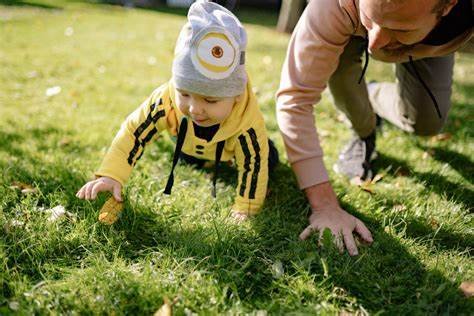Baby’s growth and development during the first few months are nothing short of extraordinary. One of the key milestones in this early stage is the growth spurt, which can be both exciting and challenging for parents. During a growth spurt, your baby will experience rapid physical and developmental changes that may affect their behavior, feeding patterns, and sleep schedule. Understanding what to expect during these periods can help you better manage the changes and offer your baby the support they need.

What is a Growth Spurt?
A growth spurt is a period during which a baby experiences rapid physical development. It usually happens in phases, where babies grow in both height and weight more quickly than usual. These spurts are often characterized by increased hunger, changes in sleep patterns, and a general increase in fussiness. While growth spurts happen frequently during a baby’s first year, they can occur at various ages, typically every 2 to 3 weeks.
When Do Growth Spurts Happen?
Growth spurts are most common during the first year of a baby’s life, and they often occur during certain periods. While every baby’s growth pattern is different, there are typical ages when many babies experience these rapid growth phases. The first growth spurt usually happens around 7 to 10 days of life. After that, you can expect them around:
- 3 weeks
- 6 weeks
- 3 months
- 6 months
- 9 months
It’s important to note that growth spurts are not just about physical size—they are also tied to developmental changes in a baby’s brain and motor skills.
Signs of a Growth Spurt
Growth spurts can be subtle or noticeable, depending on your baby. Here are some common signs that your baby might be going through a growth spurt:
- Increased Hunger: During a growth spurt, babies often become hungrier than usual. If you’re breastfeeding, you may notice that your baby wants to nurse more frequently, or they may have a longer feeding session. If you’re bottle-feeding, they may demand more formula or breast milk.
- Fussiness and Irritability: Babies may become more fussy or clingy, particularly in the evening or around feeding times. The discomfort from rapid growth can make your baby feel unsettled.
- Changes in Sleep Patterns: While some babies may sleep more during a growth spurt, others may experience difficulty settling down. Their need for extra energy during a growth spurt can lead to longer or more frequent naps, or sometimes trouble falling asleep.
- Growth in Size: You might notice that your baby’s clothes are fitting more snugly during or after a growth spurt, as they’ve gained weight and height in a short period.
- Increased Alertness and Physical Activity: As your baby grows, you may notice they seem more interested in their surroundings. They might start exploring more and exhibit signs of increased motor activity, like attempting to roll over or reaching for objects.
How to Support Your Baby During a Growth Spurt
When your baby goes through a growth spurt, it can be challenging, but there are several ways to help ease the transition:
- Feed on Demand: If your baby is more hungry than usual, offer them breast milk or formula whenever they show signs of hunger. If you’re breastfeeding, let them nurse as much as they need to satisfy their increased appetite.
- Provide Comfort: Growth spurts can make babies fussy, so providing extra cuddles, holding, and comfort can help soothe them. Try gentle rocking, swaddling, or using a pacifier to calm your baby.
Conclusion
Baby’s growth spurts are a natural and exciting part of their development. These periods of rapid change are temporary, and while they may cause a little extra fussiness and sleep disruption, they are a sign that your baby is growing and thriving. By being patient, offering comfort, and feeding your baby as needed, you can help ease them through these periods of growth. Above all, remember that every baby is different, so trust your instincts and seek guidance from your paediatrician if you ever have concerns.










